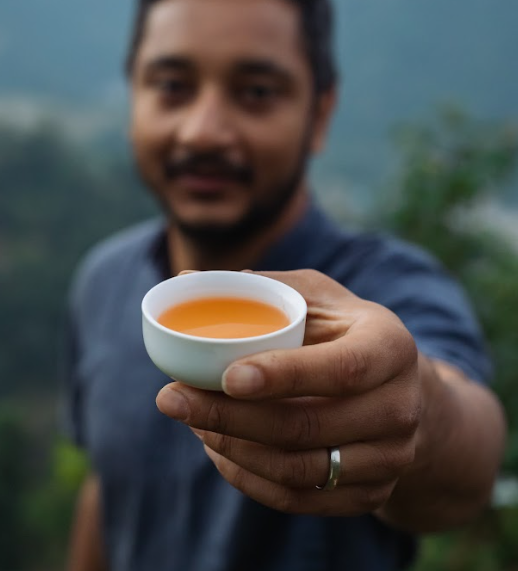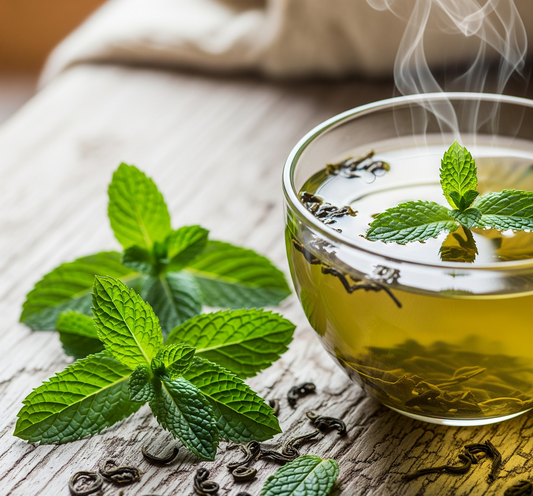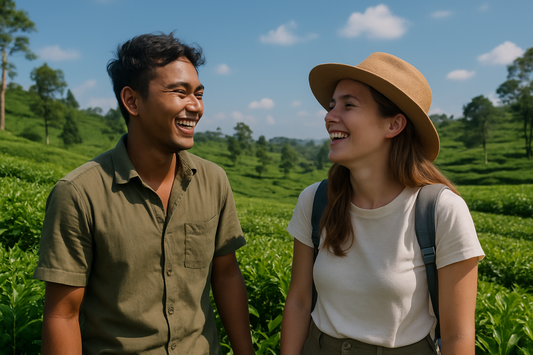Tea is often associated with caffeine, but its content varies significantly among different types. True teas, derived from the Camellia sinensis plant, include black (47 mg), green (20-45 mg), oolong (37 mg), and white (28 mg) teas. While herbal teas are mostly caffeine-free, some like yerba mate and guayusa contain higher levels. Understanding these differences can help you choose the right tea for your caffeine preferences while enjoying its health benefits.
Let’s get the elephant out of the room! Tea . . . (well most of it) has caffeine. But wait! Before you go on and close this page, there’s more to it! Like way more! The truth of the matter is that there is more than one type of tea and each is unique for having varying quantities of caffeine.

Furthermore, the amount of caffeine can vary significantly depending on several factors, including the quality of the tea, how it’s brewed, as well as the specific brand. Here we will explore the caffeine content in different types of tea, compare it with other caffeinated beverages like coffee and some tisanes, and help you understand what it means for your daily consumption.
Understanding Caffeine in Tea
You might be wondering! “What exactly is caffeine, anyway?” Well! In simple terms, it is an odorless and colorless compound belonging to the xanthine family, that has a somewhat bitter taste when submerged in hot water. Caffeine is a natural stimulant found in various plants, including the leaves of the Camellia sinensis plant, which is used to produce true teas such as black, green, white, and oolong.
Answering “Does tea have caffeine?” is somewhat tricky as the caffeine content can vary widely between different teas. But on average, an 8-ounce cup of tea contains anywhere between 25 to 48 mg of caffeine.
In comparison, an equivalent 8-ounce serving of coffee typically has about 95mg of caffeine. So if you’re someone who is looking to keep your caffeine intake to a minimum, choosing tea over coffee is something you should consider.
It is also worth noting here that tea has several bioactive compounds. The primary components include polyphenols (especially catechins like epigallocatechin gallate), amino acids (notably L-theanine), alkaloids (such as caffeine), and polysaccharides.
Polyphenols are powerful antioxidants that help reduce oxidative stress and inflammation. According to a paper on the National Library of Medicine, it may also potentially lower the risk of chronic diseases such as cancer and cardiovascular conditions.
Amino acids like L-theanine has been shown to promote relaxation and enhance cognitive function, often working synergistically with caffeine to improve mental alertness without the jitters typically associated with coffee.
Caffeine in Different Types of Tea
Before we dive into the caffeine content in different types of teas, let’s first understand what we mean by “true teas”! "True teas" refer specifically to teas that are derived from the leaves of the Camellia sinensis plant. Let’s break down the caffeine content in various types of true teas to give you a clearer picture of what to expect when you brew your favorite cup.
Black Tea

Black tea is the most famous and the most oxidized type of tea. Black tea is well regarded for its rich and robust flavor. It typically contains the highest caffeine content among true teas, averaging around 47 mg per 8-ounce cup. Popular varieties include Assam, Darjeeling, and Earl Grey, and if we may be so bold, our very own Everest Black and Kumari Gold. Black tea can be a great choice if you’re looking for a morning pick-me-up.
Read more: How Much Caffeine is in a Cup of Black Tea?
Green Tea

Green tea is known for its delicate flavor and numerous health benefits. It is minimally oxidized, which helps preserve its natural green color and antioxidants. On average, an 8-ounce cup of green tea contains about 20-45 mg of caffeine. Matcha, a powdered form of green tea, has a higher caffeine content since you consume the entire leaf, providing around 70 mg of caffeine per serving which is in a similar range to that of an equivalent serving of coffee.
Read more: Does All Green Tea Have Caffeine? Unveiling The Truth About Green Tea Caffeine Levels
Oolong Tea

Oolong tea is partially oxidized, placing it between green and black tea in terms of flavor and caffeine content. A typical 8-ounce cup of oolong tea contains about 37 mg of caffeine. This tea offers a unique taste experience, often described as floral and fruity, making it a delightful option for those looking to explore different flavors.
You might also be interested in Debunking the Myth: Does Oolong Tea Have Caffeine?
White Tea

White tea is the least processed of all true teas, made from the youngest leaves and buds. It has a subtle flavor and is known for its lightness. White tea contains about 28 mg of caffeine per 8-ounce cup, making it a gentle option for those who want a milder caffeine boost.
You might also want to read: Setting the Record Straight: Does White Tea Have Caffeine?
Herbal Teas and Caffeine

Herbal teas, such as chamomile, hibiscus, peppermint, and rooibos, are not technically considered true teas because they do not come from the Camellia sinensis plant. Most herbal teas are naturally caffeine-free, making them a popular choice for those looking to avoid caffeine altogether.
However, there are some exceptions to this rule:
Yerba Mate
This herbal tea from South America contains about 85 mg of caffeine per 8-ounce cup. But as with any beverage, the exact caffeine content of a serving of Yerba Mate depends on the variety of plants used and how it is brewed and processed.
Read more on Yerba Mate: Debunking The Age-Old Myth: Is Yerba Mate Tea?
Guayusa
Another caffeinated herbal tea, Guayusa is another famous tisane that contains about 90 mg of caffeine per 8-ounce serving. It is often brewed like green tea and offers a smooth, slightly sweet taste. While Yerba Mate is a greater source of B vitamins, phosphorus, magnesium, and calcium, Guayusa is richer in vitamins C and D, calcium, zinc, and chromium.
Caffeine in Boba Tea
A type of tea that has gained popularity worldwide, boba tea or bubble tea is a tea drink that originated in Taiwan. This unique drink combines tea, milk, and chewy tapioca beads or pearls. The exact caffeine content in boba tea will depend on the type of tea used. Another factor that needs to be considered is the size of the drink or the vessel in which it is served.
A typical 16-ounce serving of boba tea made using black tea contains anywhere from 60-70 mg of caffeine. It is worth knowing that the caffeine content can vary based on the preparation method used as well as the ingredients.
Does Tea Have More Caffeine than Coffee?
Now that we have established the fact that tea contains caffeine, it is still typically less compared to coffee. An 8-ounce cup of coffee contains about 95 mg of caffeine, while black tea, the most caffeinated type of tea, averages around 47 mg. So if you’re looking for a stronger caffeine kick, coffee will be a better choice. However, if you prefer a gentler lift, you can opt for tea and reap the rich flavors and health benefits.
In summary, tea does contain caffeine, but the amount varies depending on the type of tea and how it’s brewed. From black tea’s robust flavor to green tea’s delicate notes, there’s a tea for everyone to enjoy. While tea generally has less caffeine than coffee, it still provides a gentle lift that many people appreciate.




